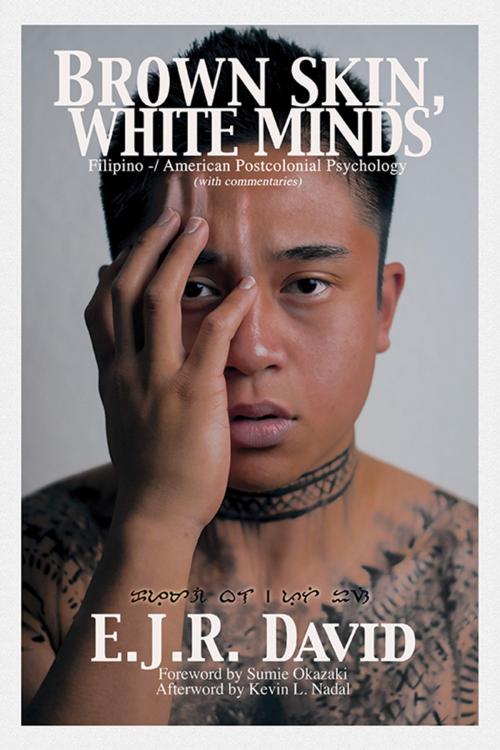Brown Skin, White Minds
Filipino / American Postcolonial Psychology
Nonfiction, Reference & Language, Education & Teaching, Educational Theory, Multicultural Education, Social & Cultural Studies, Social Science, Anthropology, Health & Well Being, Psychology| Author: | E. J. R. David | ISBN: | 9781623962098 |
| Publisher: | Information Age Publishing | Publication: | February 1, 2013 |
| Imprint: | Information Age Publishing | Language: | English |
| Author: | E. J. R. David |
| ISBN: | 9781623962098 |
| Publisher: | Information Age Publishing |
| Publication: | February 1, 2013 |
| Imprint: | Information Age Publishing |
| Language: | English |
Filipino Americans have a long and rich history with and within the United States, and they are currently the second largest Asian group in the country. However, very little is known about how their historical and contemporary relationship with America may shape their psychological experiences. The most insidious psychological consequence of their historical and contemporary experiences is colonial mentality or internalized oppression. Some common manifestations of this phenomenon are described below: • Skinwhitening products are used often by Filipinos in the Philippines to make their skins lighter. Skin whitening clinics and businesses are popular in the Philippines as well. The "beautiful" people such as actors and other celebrities endorse these skinwhitening procedures. Children are told to stay away from the sun so they do not get "too dark." Many Filipinos also regard anything "imported" to be more special than anything "local" or made in the Philippines. • In the United States, many Filipino Americans make fun of "freshofftheboats" (FOBs) or those who speak English with Filipino accents. Many Filipino Americans try to dilute their "Filipinoness" by saying that they are mixed with some other races. Also, many Filipino Americans regard Filipinos in the Philippines, and pretty much everything about the Philippines, to be of "lower class" and those of the "third world." The historical and contemporary reasons for why Filipino / Americans display these attitudes, beliefs, and behaviors often referred to as colonial mentality are explored in Brown Skin, White Minds. This book is a peerreviewed publication that integrates knowledge from multiple scholarly and scientific disciplines to identify the past and current catalysts for such selfdenigrating attitudes and behaviors. It takes the reader from indigenous Tao culture, Spanish and American colonialism, colonial mentality or internalized oppression along with its implications on Kapwa, identity, and mental health, to decolonization in the clinical, community, and research settings. This book is intended for the entire community teachers, researchers, students, and service providers interested in or who are working with Filipinos and Filipino Americans, or those who are interested in the psychological consequences of colonialism and oppression. This book may serve as a tool for remembering the past and as a tool for awakening to address the present.
Filipino Americans have a long and rich history with and within the United States, and they are currently the second largest Asian group in the country. However, very little is known about how their historical and contemporary relationship with America may shape their psychological experiences. The most insidious psychological consequence of their historical and contemporary experiences is colonial mentality or internalized oppression. Some common manifestations of this phenomenon are described below: • Skinwhitening products are used often by Filipinos in the Philippines to make their skins lighter. Skin whitening clinics and businesses are popular in the Philippines as well. The "beautiful" people such as actors and other celebrities endorse these skinwhitening procedures. Children are told to stay away from the sun so they do not get "too dark." Many Filipinos also regard anything "imported" to be more special than anything "local" or made in the Philippines. • In the United States, many Filipino Americans make fun of "freshofftheboats" (FOBs) or those who speak English with Filipino accents. Many Filipino Americans try to dilute their "Filipinoness" by saying that they are mixed with some other races. Also, many Filipino Americans regard Filipinos in the Philippines, and pretty much everything about the Philippines, to be of "lower class" and those of the "third world." The historical and contemporary reasons for why Filipino / Americans display these attitudes, beliefs, and behaviors often referred to as colonial mentality are explored in Brown Skin, White Minds. This book is a peerreviewed publication that integrates knowledge from multiple scholarly and scientific disciplines to identify the past and current catalysts for such selfdenigrating attitudes and behaviors. It takes the reader from indigenous Tao culture, Spanish and American colonialism, colonial mentality or internalized oppression along with its implications on Kapwa, identity, and mental health, to decolonization in the clinical, community, and research settings. This book is intended for the entire community teachers, researchers, students, and service providers interested in or who are working with Filipinos and Filipino Americans, or those who are interested in the psychological consequences of colonialism and oppression. This book may serve as a tool for remembering the past and as a tool for awakening to address the present.















